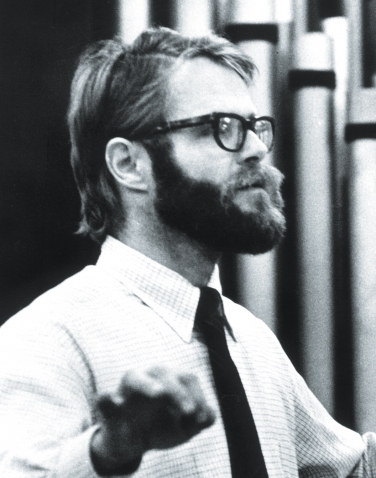Owen Jander, Catherine Mills Davis Professor of Music, emeritus, died on Jan. 21 at the age of 84. He taught in the music department at Wellesley from 1960 until his retirement in 1992.
Owen’s impact on the life of the College was extraordinary. He was an inspired and inspiring scholar, teacher, and colleague. His publications remain fresh, powerful, and important. He tackled large intellectual questions and microscopic musical details with equal intensity and joyfulness, just as he mixed vast erudition and intense personal engagement with a balance of grace and authority. He wrote about music passionately and with the greatest skill and seriousness, but always with a light touch.
“The importance of Corelli’s Opus 6 is so monumental, that we are compelled to wonder what his immediate Roman models might have been,” he declared in the introduction of a groundbreaking article on instrumental music in the Italian baroque. This characteristically deft sentence promotes a sense of humble collusion between reader and writer, just as it spotlights a turning point in Western art music, affirms the greatness of a great tradition, and insinuates an entirely fresh and empathic idea about the life of a unique human being who happened to be a great composer.
The work Owen is now perhaps best known for is his study of form and narrative in Beethoven, a subject he came to at midcareer. Here, too—as in his work on the milieu of Roman baroque music—his intensity of imagination, depth of learning, and empathic identification with his subject shine through brightly. Owen’s work on Beethoven sparked a far-ranging, public dialogue about narration in absolute music, but it also subtly transformed our understanding of Beethoven’s world. In just a few sentences, he could take us into late 18th-century Vienna, informing us (for example) about the translations and editions of Ovid or the liberalization of Viennese culture in the 1790s, even as he showed us something new about the most widely studied music in the Western canon. He evoked Beethoven’s world as deeply and imaginatively as any in the imposing cohort of Beethoven scholars, from Thayer to Tovey to Lockwood.
The passion so palpable in Owen’s scholarship was also manifest in his unflagging generosity toward his colleagues and students. For Owen, music making, teaching, and learning were always centrally a matter of building community. He was a brilliant mentor. It was characteristic of him to get to know his colleagues in conversations over coffee or dinner (always his treat), reading through string quartets, or comparing notes on an exciting concert or recording. He was always eager to learn about our individual ways of engaging with music, as well as our other life-sustaining pursuits, however close or far they were from his own.
Owen thought creatively about how to nourish and encourage his colleagues’ interests, both in the world of professional music and within the Wellesley College community. He was just as concerned with the recognition of his colleagues’ talents and accomplishments as with their personal and professional development, and was especially imaginative and resourceful in finding ways to help us both to envision and to realize our goals.
That the same holds true for Owen’s encouragement and support of his former students—something that comes across magnificently in the outpouring of tributes we have received from them. While it does not surprise us that most of these messages make a point of Owen’s infectious passion, energy, and enthusiasm, what impresses us especially is how many of his students write of the ways their work with him has continued to sustain them ever since.
Thus one alumna’s statement, that Owen inspired her interest in music in a way that has never faded, echoes many others. Several say that Owen, more than any of their other professors, taught them how to write. Others say that taking a class with him was the most decisive factor in their decision to major in music, largely because he so loved witnessing students’ discoveries as he opened the door to new musical experiences for them.
One former student states explicitly, “It is really because of Owen Jander that I am a professional musician and music educator today.” She is one of the many for whom Owen went out of his way to provide special opportunities to attend concerts, to perform in different contexts, and to explore as-yet unfamiliar pathways that he sensed they would find of particular interest. Like her, others with careers in music pedagogy have aspired to the standards he exemplified for them, always seeking to imbue their teaching with the imagination and spirit that he passed on to them. Put most succinctly, all of these former students share memories of what one of them has called “the wonderful time of growth and affirmation I experienced under Owen’s tutelage.”
As is well known throughout the music world, the building of the magnificent Fisk Organ in the Wellesley College Chapel was due to Owen’s vision and leadership. It continues to be a fitting tribute to his artistic and intellectual spirit: a physically beautiful and sonically refined instrument that brings a historic repertory of music to life in the present. The legacy of his personal presence at Wellesley and in the musical community at large—the force of his kindness, intellectual curiosity, and collegiality—remains just as strong.





We ask that those who engage in Wellesley magazine's online community act with honesty, integrity, and respect. (Remember the honor code, alums?) We reserve the right to remove comments by impersonators or comments that are not civil and relevant to the subject at hand. By posting here, you are permitting Wellesley magazine to edit and republish your comment in all media. Please remember that all posts are public.